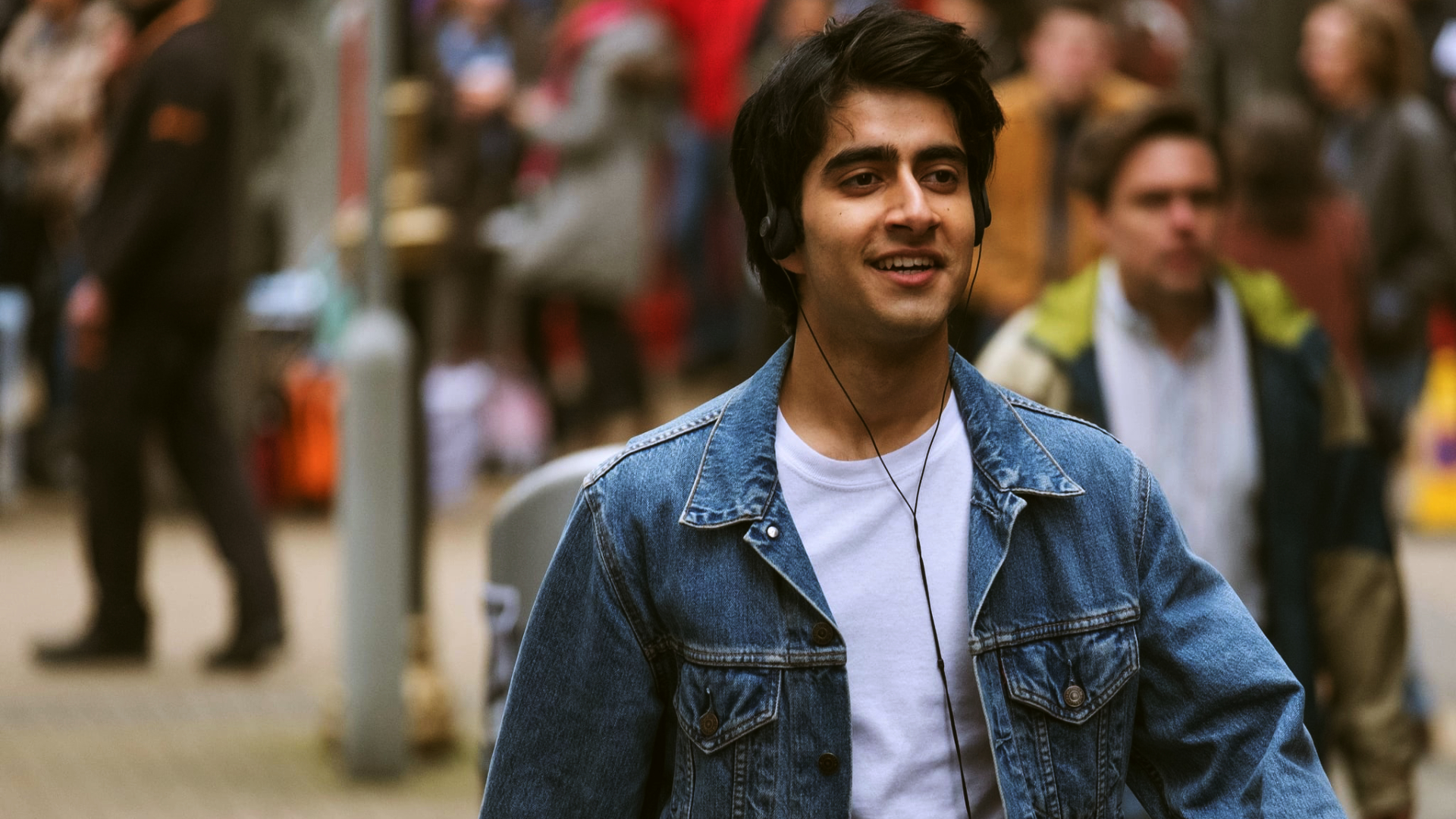For some, music is a life-giving force. It’s a way to express feelings and emotions that you can’t put into words yourself. And for British-Pakistani teen Javed (Viveik Kalra), this sentiment has never been more true than when he discovers the wonders of Bruce Springsteen.
Stuck in the “four letter word” town of Luton, Javed is constantly grappling with dueling worlds. At home is his father, who runs a traditional Pakistani and Muslim household. His personal life counters that with the comparatively liberal and free-spirited life of 1980s London.
Javed struggles to balance the pressure of being a “good Pakistani son” with his desire to live the life he wants to live, free from the stress of always putting the family needs above his own wants and needs. As is the case with so many teenagers, he doesn’t feel that anyone understands him. Not his traditional family, not his best friend – and London native – Matt, no one.
But things take a turn for the better as the new school year begins. His English teacher, Miss Clay (played by an underutilized Hayley Atwell) encourages him in his writing habits. He meets a girl, Eliza (Nell Williams), who becomes his first girlfriend. But nothing compares to the impact of hearing Bruce Springsteen, The Boss, for the first time.
When another classmate, Roops (Aaron Phagura), loans Javed two Springsteen tapes, a whole new world exposes itself. In Springsteen’s lyrics, Javed finally finds the voice he’s been looking for. And this begins Javed’s journey of trying to translate this newfound inspiration into real life action.
However, like Javed’s new path, the rest of the movie is an uneven ride. Its high points are tremendously satisfying. But its low points? Very low. After Javed discovers Bruce, he becomes at times insufferable. He has an almost god-like worship of Springsteen. He’s very much literally “blinded by the light.” Javed tries to force Springsteen onto everyone in his life, as if The Boss’s music is a be-all end-all, perfect solution to not just his problems, but everyone else’s as well.
It’s a fairly obvious parallel the movie’s trying to draw between Javed before Bruce and Javed after Bruce. Before, he was tired and annoyed by everyone else pushing their values and thoughts onto him. And after, Javed starts doing the same to those around him. And while this is a fair comparison to make, it’s so in your face about it. There’s no subtlety or nuance. Javed makes such an abrupt heel turn that it’s hard to root for him when he’s in full on “Bruce mode.” And that’s unfortunate because he’s so likable and relatable otherwise.
The other place Blinded falls short is in the use of the music itself. When it really wants to feature one of Springsteen’s hits, it turns that scene into a pseudo-music video, complete with lyrics flashing across the screen. A cool effect for trailers, not so great for the actual movie. That feature would have felt more at home in a movie like Rocketman, but it simply doesn’t fit with the overall feel here.
But thankfully there is a saving grace: the characters. When the story starts to focus in too much on Springsteen’s actual music, the pace picks up and it all becomes quite frantic. But when it slows down and gives the story, the characters, and their relationships with each other ample room to breathe, it shines. There are just so many great relationships peppered throughout this movie, highlighted by Javed and his father, Malik (Kulvinder Ghir).
Javed and Malik begin the movie the furthest apart, the most at odds. And while it’s never fun to see a parent and child fail to connect like this, it also means they have the most room to grow. Like any two people struggling to understand each other, there are some hard and painful scenes. But there are also some truly powerful, touching moments between these two.
Whether it’s Javed and Malik or Javed and anyone else, every single relationship feels real. Javed and Matt have arguments – some legitimate, some dumb – just like any best friends would. Javed and Eliza have typical teenage relationship issues. Everything portrayed on-screen feels as though it would actually happen if this story were playing out in real life.
But as great as all the one-on-one relationships are, Javed deserves special mention. A common through line in other reviews has been how much heart and soul the movie has. And Javed is the heart and soul of the story. Nothing works without him. But what about his character is so effective? It’s actually quite simple. Nearly everyone can relate to him in one way or another.
Javed is a teenager struggling to find his identity. He doesn’t feel particularly connected to his family, and there is only a small number of school peers he feels comfortable with. He’s uncertain about his path in life. He’s worried about how his choices in the present will affect his life in the future.
Who can say they haven’t felt that way at some point in their life? Everyone should be able to see a part of themselves in Javed. And even more than that, everyone wants to see someone they can relate to portrayed on screen. It creates a much more personal connection between an audience and a character. Their failures are your failures. Their successes are your successes. So when Javed finally starts to find happiness, it’s not just a win for him, it’s a win for all of us as well.

